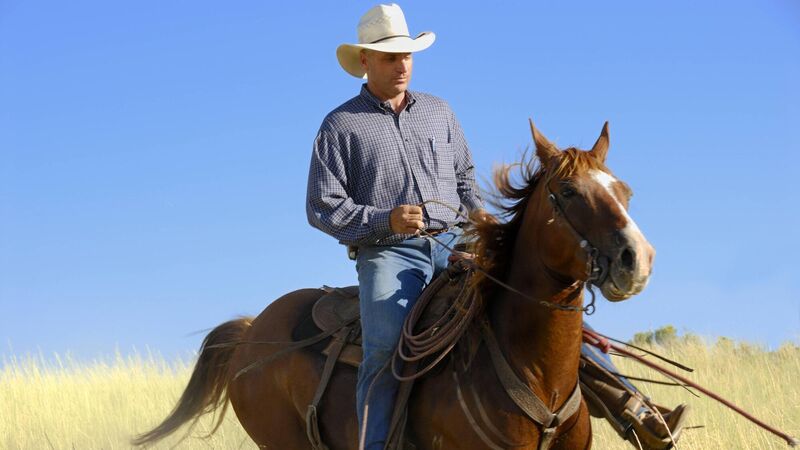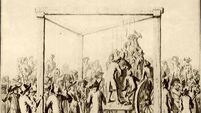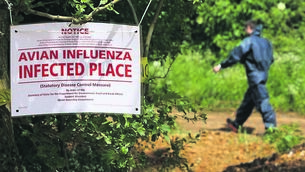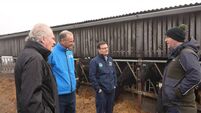Áilín Quinlan: ‘The things is, cowboys are only human..like the rest of us’

There were lots of good cowboys out there on the ranch doing the right thing every day.
Once upon a time, there was a huge cattle-ranch.
A ranch that was three-quarters the size of Ireland and had thousands of cowboys operating in posses.
One day word came that some cowboys were doing things that good cowboys should never do.
Cowboys were expected to exercise professional discretion in the course of their duties, but it seemed, some were not applying this discretion in a professional manner.
Following much fuss and commotion about what the bad cowboys were up to, the people running the ranch decided to hire a new Boss Cowboy.
This new Boss Cowboy was from a different ranch.
His mission: seek out and destroy those bad cowboy antics.
He was strict and strong and straight. He played by the rules. He believed in the letter of the law and in keeping his thoughts to himself and in not getting friendly with any of the ranch-hands.
Nothing wrong with any of that. How could there be?
See, not everything was wrong on the ranch or with the cowboys.
It was a fact that some cowboys did not carry out their duties properly.
That some were not honest.
That some abused their power in different ways.
But only some.
However, as part of his mission to ensure every cowboy under his command toed the line, the new Boss Cowboy brought in lots of new procedures and regulations and oversights, new protocols, mountains of paperwork, and a lot of disciplinary initiatives.
Cowboys were routinely moved between different posses and different areas of the ranch as part of a new, heavily centralised structure.
This meant the loss of the local good-will and know-how that, under the old structure, good cowboys naturally developed from living and working within different communities across the ranch.
One day, a cowboy decided – as part of what he considered his professional discretion - to donate an unwanted stray horse to a lonely old farm-hand who lived in an isolated part of the ranch.
The cowboy, who didn’t complete the necessary paperwork related to the handover of the nag, suddenly found himself at the centre of a very serious disciplinary criminal inquiry.
He was sent to the bunkhouse for several years and stood accused of shocking things such as discreditable conduct, disobedience, the misuse of property, and the neglect of his duty.
Suddenly, people noticed a new tension between a cowboy’s ability to exercise compassionate discretion and the requirement for him to follow protocol.
People complained that Boss Cowboy was using sledgehammers to crack nuts. That there was now a disconnect between the cowboys and the ranch communities, and an even greater one between cowboys and cowboy management.
Cowboys were being issued with horses that were too lame to keep up with the far more powerful steeds of poachers and cattle-thieves.
They were disciplined for riding their horses too fast or in the wrong direction.
They were discouraged from signalling that they were in pursuit of a cattle-thief.
If anything went wrong during a chase, the cowboys faced severe disciplinary measures.
There was a feeling that when cowboys caught poachers, the punishment meted out to the criminals was lighter than the punitive measures cowboys now faced from their own management for making a mistake.
There was a feeling that a cattle thief who injured a cowboy was let off more lightly than if it had happened the other way around.
Cowboys complained they felt too boxed in to do their jobs properly. That their hands were tied. That they were disempowered.
They complained that some cowboys were being confined to the bunkhouse for lengthy periods while minor infringements were forensically investigated.
Now though, cowboys complained, they were constantly looking over their shoulders, anxious about even unwittingly infringing some small regulation.
They became wary of drawing ranch-issued weapons, even in the presence of danger.
Younger cowboys started to leave the ranch.
Experienced cowboys started to retire earlier.
The owners of the ranch experienced difficulty recruiting new cowboys.
One day, it was announced that even after all the strict new protocols and all the regulations, surveillance and punitive measures, that an investigation had found that some cowboys in an elite posse were still not doing their jobs properly and worse, demonstrating hostility and blatant disregard for their work.
The entire ranch, including the cowboys, demanded that these new findings be officially, and clearly posted up where everyone could read them and respond in an informed way. But at the time of writing, despite all the commotion, this hadn’t happened.
An army marches on its stomach and on strong discipline. On morale. And on sturdy clothing and footwear, top-class weaponry, fair and robust support from its leadership - and access to the best and most powerful horses money can buy.
A lack of these is no excuse for neglecting one’s duty.
Many will rightfully insist that no matter how resentful cowboys feel about their treatment by the ranch, they should still do an honest day’s work for an honest day’s pay.
But cowboys, it should also be said, are only human.
Like the rest of us.
Only saying.







 App?
App?




